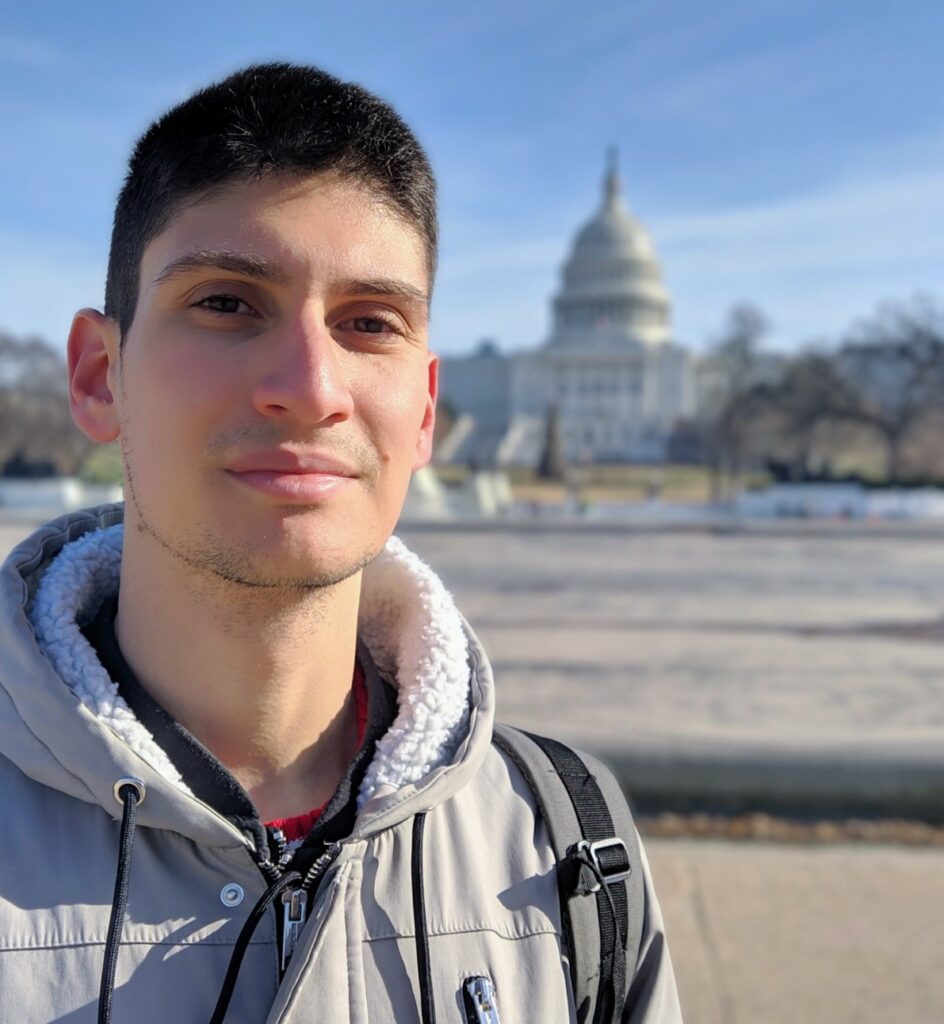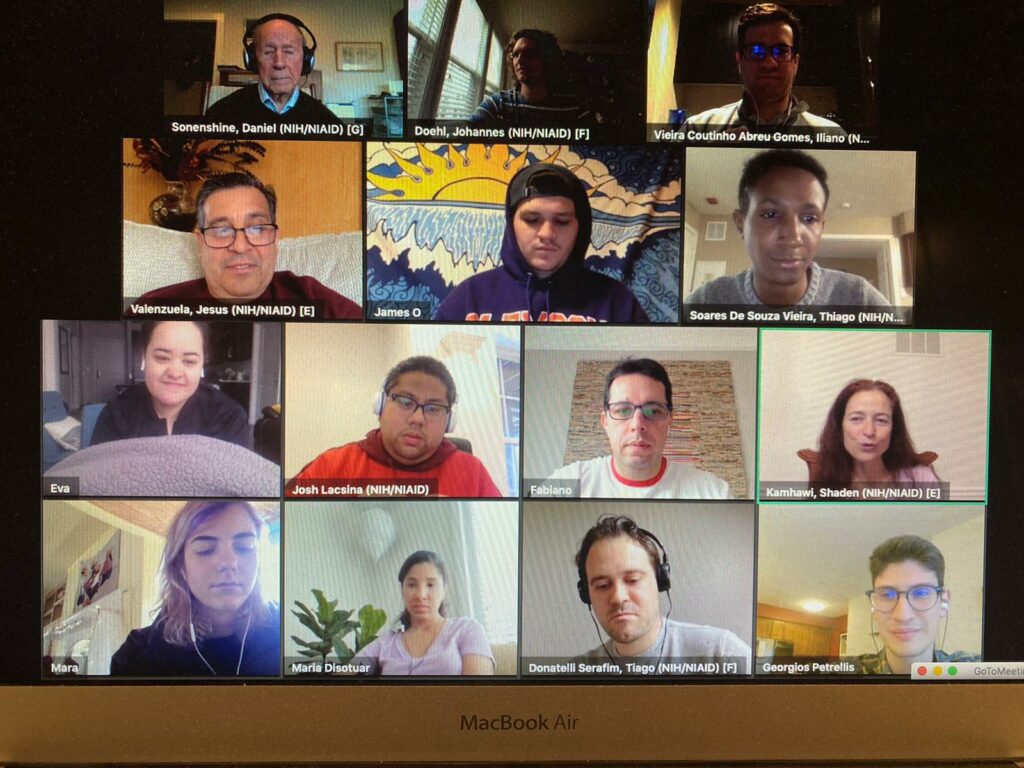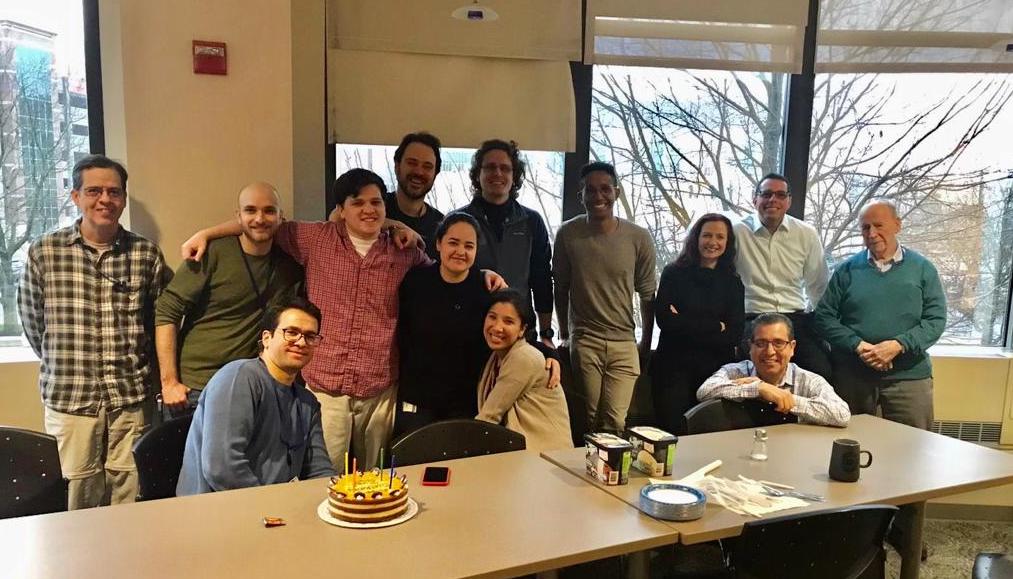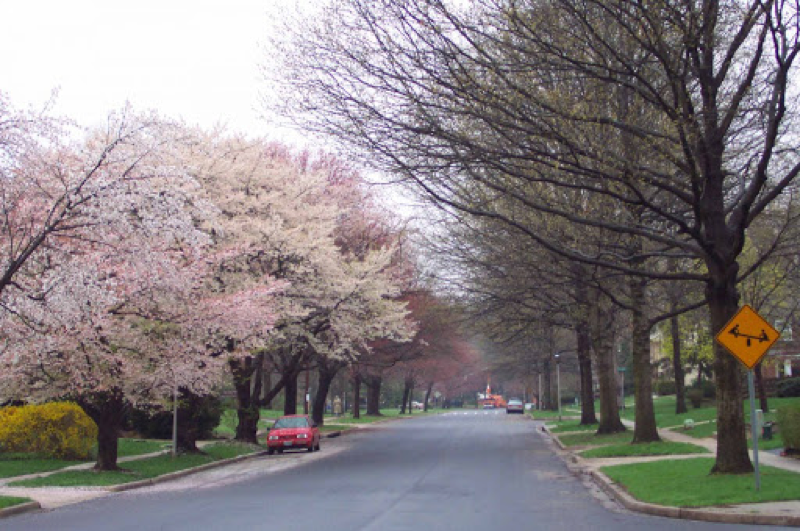
Hi everyone! I am Georgios Petrellis and I’m an international student in the Faculty of Pharmaceutical Biomedical and Veterinary Sciences at the University of Antwerp. In November, I moved to Maryland in the USA to complete my Master’s thesis research at the National Institutes of Health (NIH). More specifically, I’m working at the National Institute of Allergy and Infectious Diseases (NIAID). My institute has been in the news a lot lately as it’s coordinating the US COVID-19 task force. Maryland is situated on the East Coast and it’s also home to the Johns Hopkins University and the beautiful Chesapeake Bay.
This Coronavirus pandemic forced many international students to return back home, but I decided to stay here. Similarly to citizens all over the world, in Maryland we’re also asked to stay home, in self-isolation, to minimize the spread of the Coronavirus. Self-isolation can be boring but it is also stressful, especially with the continuous stream of negative COVID-19 news. However, it’s essential to find ways of managing this stress. I’d like to share some tips on how I’ve been managing stressful situations during this period.
The first thing that I found stressful was being alone. As an international student in the US, going to the lab every day and interacting with my NIH colleagues was an important part of my life.
I felt that staying inside the entire day and not being able to meet my colleagues and friends to talk about science or other daily things was suffocating me. However, I was not the only one. Other members from my lab shared the same feelings and we soon started videochatting, either in group or one-to-one. We share memes and find humorous ways to deal with the lockdown. Every Wednesday and Friday afternoon we organize a virtual happy hour, and we do a video chat with a glass of wine or a bottle of beer and we share our thoughts. It took a while to get used to this new way of communicating, but drinking a nice cold beer in my sweatpants in the comfort of my own room is truly great!

Leaving my home to do grocery shopping during the first days of the lock-down was very shocking. People were wearing masks and gloves, piling all the food they could into their trolleys (and yes, toilet paper too), and there were very long waiting lines at the cash tills. It felt like we were preparing for the end of the world. In the supermarket, some people were panicked and said aggressive things like: “Move away from me, I’m old!” or “Can you not breathe so close to me?”. But thankfully, soon people stopped panicking so much. Now, supermarkets have put a limit on the number of some products (such as eggs and milk) that each person can buy and hand sanitizer bottles and disinfectant wipes stations were installed. The supermarkets now also have an online ordering and delivery platform but due to the increased demand, it can take two weeks to receive your order. In my community, a group of young volunteers go grocery shopping for the elderly neighbours and leave the groceries outside their doors. For me, volunteering in such an active way makes me feel good as I’m helping people and we’re working together to protect the most vulnerable members of our community.
In the beginning, I found all this extra “free” time at home very difficult. I was concerned that I wouldn’t be able to finish my Master’s thesis if I could not collect enough data in the lab. But then I spent the first week organizing all my data and I realized that I do have enough data to write my thesis. It may not be perfect and there are experiments that I would like to repeat, but still, my data looks good! Recently, my supervisor gave me the opportunity to help write a literature review to complete my thesis, and I felt relieved and happy. Not only could I finish my thesis, but now I will also be a co-author on a review paper. I would not have had this opportunity if the lockdown hadn’t happened.
It took me around ten days to fully adapt to my new lifestyle. I’ve kept my sleeping schedule the same, although nowadays I prefer taking a couple of power naps after lunch and dinner. In the morning I go for a short run to wake myself up, and in the afternoon I do a 20 minute home workout (or work-in, as they like to call it!). Not hitting the gym was weird, but then my gym has free online 20 min work-out routines that everyone can take together, so we can do a group work-out. Exercise is such a great stress reliever for me! Sometimes I take part in a fitness challenge with my friends from Greece (my home country), and we work out together although we are thousands of miles apart (yes, I have learned to use miles instead of km). When working on my thesis, I sit by my window to create the feeling that I am outdoors. It’s a great mood booster to open up my window and let the fresh air with the chirping sounds of the birds, enter my room.
The whole world is in turmoil at the moment and we don’t know when this will end. But what we do know, is that it will end. Being part of NIH, I get so much information about new medicines that are being tested and promising vaccine candidates. This is the reason why I chose to become a Biomedical researcher: to be able to find solutions for problems like these.

I know springtime in Belgium is beautiful, so I’d like to leave you with a photo of the colorful Cherry Blossom trees here in Maryland, on the other side of the Atlantic. Stay safe everyone!

Article written by Georgios Petrellis. Editor: Dr. Bronwen Martin
